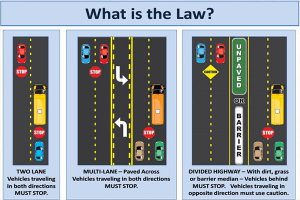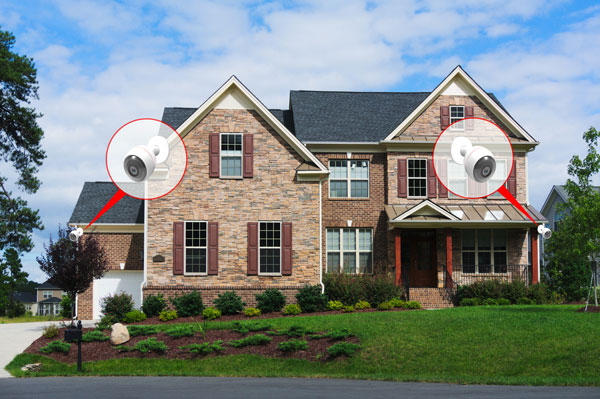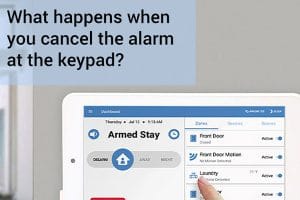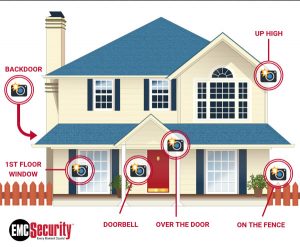Your cart is currently empty!
Tag: new emc
-

Why Your Security System Should Use Cellular Communication
Your home security system has three options to communicate with your monitoring service provider, such as EMC Security.
Those options are
landline , Wi-Fi, and cellular. While each connection type will provide you with reliable home security monitoring, there are a few things to consider when deciding which is right for you.In this post we’ll examine the reasons we believe a cellular connection is a great choice for most homes today, especially considering most households don’t have an operational landline as more and more people opt for cell phones.
But first, let’s discuss the differences between each connection:
Landline
Connecting your home security system through your phone line is the most cost-effective option as there’s no equipment to buy and no charge to transmit the alarm other than the monthly monitoring rate. However, if your phone line is cut, there’s no way for the alarm to communicate with the service provider’s central station. In addition, if you opt for the landline connection, there is no way to access the security system using a smartphone, which is a feature most customers are looking for.
Wi-Fi
This type of connection communicates with the monitoring service via an internet connection. The benefit of this type of connection is that there is no transmission cost — as long as you have an internet connection, the service provider will only need to put a module in to allow it to communicate over the internet. There is a cost for the module, but it will also give you the ability to control the security system through a smartphone. It’s important to note that this type of connection relies on your IP connection, so if your internet goes down, the system won’t be able to communicate.
Cellular
A cellular connection communicates with the monitoring service provider via cellular towers and is considered the most secure because there are no lines that can be cut to prevent the system from communicating with the provider. There are equipment costs, however, as you’ll need to purchase a cellular communicator, and the cell carriers will charge a small monthly transmission cost for the cellular communicator. Because the technology will advance over time, you will need to upgrade your cellular communicator from time to time.
Now that you know the difference between each of the connections, let’s discuss three reasons a cellular connection is the best choice for most home:
It’s the Most Secure: Both landline and Wi-Fi communication are susceptible to disruption: landlines can be cut, and Wi-Fi relies on an active internet connection. A cellular connection communicates through cellular towers and is less vulnerable.
Convenient: A cellular connection can be controlled from anywhere using a smartphone, tablet or computer. Perks include real-time alerts and monitoring.
More Control: A cellular connection offers more interactive services, such as
virtual keypad, live video, door lock, lighting and thermostat controls. You can also arm and disarm from your phone and have access tolive-streaming video.If you’re ready to purchase home security but aren’t sure which system is best for you, download our Free Guide to Buying Home Security to learn more about the available options.
-

How to Prevent Being Locked Out
Have you ever been locked out of the house?
It’s not easy to do anymore since we have so many electronics to help, but sometimes it can’t be helped and it’s more than frustrating.
Below are some tips that might help prevent a lock out down the road:
Go Keyless. Install smart-locks so you don’t need a key to get in. These handy devices are controlled with a smartphone. You can easily provide guests with their own custom code and/or unlock the door from anywhere at any time. Better still, integrate a smart-lock with your security system and control everything with one app.
Give a Spare Away. Prevent the problem by giving a spare key to a trusted friend, family member, or neighbor. Someone with flexible availability is ideal for quickly fixing the problem in the future.
Hide a key outside. Hide-a-Keys and outdoor key holders come in many shapes and forms. They’re often disguised as rocks or yard decorations. These products are great for hiding a spare key to a house, safe, or drawers.
So what if you get locked out? Below are a few things to do:
Look for unlocked windows or doors. Check all the entrances to your home including windows. While it’s not a good idea to leave anything unlocked, you might get lucky (just this once).
Call for help. Call you spouse, roommate, anyone that might be able to get you in. If you live in an apartment complex, stop by the manager’s office to ask for access. It’ll probably cost you a fee but you might get inside quickly.
Call a locksmith. This will cost about $100 or so, but they are often available 24/7 to help.
-

Say “No” to Auto-Renewals
Have you ever sign up for a subscription or on-going service and then get surprised by a renewal charge that shows up on your credit card bill weeks later? Have you gotten discouraged when you can’t figure out how to cancel? Or it’s too late to prevent the charges?
It’s called automatic renewal, and the practice is showing up more frequently in consumer contracts for all sorts of services and products. It’s happening everywhere from entertainment subscriptions to gym memberships to home security.
Some people even refer to auto-renewals as “zombie contracts” because they seem to never die. Despite seeing the charges and trying to cancel, you’re always too late and the fees keep repeating themselves.
So, if you’re unwittingly auto-renewed into a new contract with a home security company and want to challenge the agreement — you’re not alone.
Georgia law requires every customer to be notified between 30 and 60 days of the original expiration date of the contract. The notification must clearly state that the contract is renewing. It must also provide clear instructions on how to cancel service if they do not want the contract to automatically renew for any term more than month to month.
Most companies are following state regulations on notification of a contract term in the original agreement. However, fewer are properly following the requirement of notifying customers that their contract is automatically renewing for more than a one-month term.
If you find yourself in this situation, check to see if you’ve received this type of written notification within the required time period. If not, you can dispute the auto-renewal and get out of the renewal without penalty.
Once you’re free from the binds of the agreement, you can resecure your home protection with EMC Security’s no-contract required policy.
Click here to download a full copy of the Georgia Auto-Renewal Law.
-

What to do if your package is stolen
Many of us have felt the frustration of expecting a package delivery and it not arriving on time. Worse yet, an increasing number of people have received a notice of delivery but the package isn’t there. Below are tips on what to do if this happens to you.
Check again. Check every entrance of your home and spots the delivery driver could have left it, like the bushes around the front porch, the back porch, the garage, or between the screen door and front door. We’ve even seen packages sitting in the bushes adjacent to the mailbox.
Contact the delivery company. Have your tracking number and order details handy. If they can validate that the package was indeed delivered, ask if they can verify the location. UPS will often upload an image of the package (and location) as proof of delivery. Ask about the company policy on stolen packages. If the theft was due to their mistake, they might be able to help you.
Contact the retailer. Get in touch with customer service and have your order and tracking number ready. The customer service rep can tell you the store or company policy on stolen items.
File a report. Report your missing package to the police and the Postal Inspection Service if it was shipped via the USPS. The more agencies helping you track down your stolen package, the better.
Make it Easier:
There’s a reason why doorbell cameras are the most popular home security cameras. They work. A doorbell camera records all activity from your front door – to an optional range of your choice. Some can view road traffic and others choose to only see what happens within a few feet of the camera. The best cameras have an intercom feature that lets you talk to anyone on your doorstep. EMC Security’s doorbell camera is just $149.
For extra security, outdoor cameras can be placed around the perimeter of your home starting at $99 each.
-

Georgia School Bus Law – Reminder
Many school systems have opted for online learning this fall. But there are also many districts that have offered in-school learning – so buses will be on the roads once again.
It’s important for people to realize how dangerous it can be at bus stops, which is why drivers have a responsibility to make sure students can leave those bus stops safely.
According to law, vehicles traveling in both directions must stop when a school bus is stopped on a road with its lights on and sign out. This applies to two-lane roads, four-lane roads, and roads with a turning lane. The only time you do not have to stop is if there is a median in the road, separating you and the bus. These sections of roadway are usually divided by a grassy area, a paved area, or a concrete wall.

Penalties for Breaking the Law
If you are caught passing a school bus that is stopped, you could be fined up to $1,000 and risk getting six points on your driver’s license. As such, remember, if you see a school bus stopping and the red lights are on, you need to stop unless it’s a road with a median.
According to a school official, bus drivers try to avoid bus stops where students have to cross the street, but it does still happen and sometimes students cross when they aren’t supposed to.
Sometimes, it’s possible that a child might get confused, and not having traffic stopped in all directions could be catastrophic, which is why it’s important that drivers educate themselves on the new law and the cautions that come with driving on the roadways during the school season.
Did you know that EMC Security protects more kids and staff at school in Georgia than any other company? That’s over 358,000 students and staff! Learn how we can keep you and your family safe at home too.
-

Home Burglary Prevention Checklist
The following checklist was designed to help you improve the overall security and safety of your home.
The main purpose of any home security inspection is to help you familiarize yourself with the features in your home or daily routines of your family, which might make it vulnerable to burglary.While we believe everyone should have a security system in their home, there are things you can do to deter intruders and keep your home as safe as it can be.Your security inspection should begin at your front
door, and cover all of your home’s doors, windows, locks, lightsand landscaping. If there are any questions on the checklist, to each you’ve answered “No”, you should correct the current condition to help ensure the safety and protection of your family and home.Doors
- Are the doors of the home metal or solid wood construction?
- Do your entry doors provide a wide-angle view?
- Are all door locks sturdy and in good condition?
- Are there any windows within 40 inches of the door locks?
- Can the locking mechanism be reached through a mail
slot, or pet entrance? - Are door hinges protected from removal from the outside?
- Can all your doors be securely locked?
- Are entry points unobstructed by shrubbery or
other decor for maximum visibility? - Do your sliding glass doors lift out of the track?
- Are door frames strong enough and tight enough to prevent forcing or spreading?
- Is there a screen or storm door with an adequate lock?
- Are all entrances lighted with at least a 40-watt light?
Windows
- Are all windows equipped with auxiliary key locks or are they pinned?
- Are your window locks properly and securely mounted?
- Do you keep your windows locked when shut?
- Do you use locks that will allow you to lock partially opened windows?
- Are you as careful to secure your
second floor windows, as you are to secure those on the first floor? - Do windows have screens or storm windows that lock from the inside?
- Do windows that open into hazardous areas have security screens or grills?
- Are exterior areas of windows free from concealing structure or landscaping
- Is the exterior adequately lighted at all window areas?
- Are ladders kept where they are not accessible?
Entrances from Garage and Basement
- Are all entrances to the living quarters from a garage or basement of metal or solid wood construction?
- Does the door from the garage to the living quarters have locks adequate for exterior entrances?
- Does the door from the basement to the living quarters have an adequate lock operated from the living quarter’s side?
Basement Doors and Windows
- Is there a door from the outside to the basement?
- If so, is that door adequately secure for an exterior door?
- Is the outside basement entrance lighted by an exterior light of at least 40 watts?
- Is the outside basement door concealed from the street or neighbors?
- Are all basement windows adequately secured against entrance?
Garage Doors and Windows
- Are garage doors equipped with a working locking device?
- Is the garage door closed and secured at all times?
- Are the garage windows secured adequately for ground floor windows?
- Is the entrance to the garage as secure as other entries to the house?
- Are tools and ladders stored in the garage?Are all garage doors lit on the outside by a 40-watt light or greater?
-

Tips For Outdoor Camera Placement
A home without a security system is 3 times as likely to get broken into than one with a security system.
Video cameras add even more protection because they often deter criminals before attempting to get into a home.
According to the survey, “Understanding Decisions to Burglarize from the Offender’s Perspective,” conducted by the University of North Carolina, 60% of burglars would consider the presence of security cameras when selecting a target, and more than 40% said that cameras are a factor in choosing another target.
Law abiding people don’t tend to consider the mind of a burglar. But the fact is, most thieves know more about home security than the average
home owner . So it’s important to know the best place to put a security camera so they skip your home and move on, away from your property.Where To Place Your Security Cameras
We’ve uncovered the best places to install security cameras around the outside of your home to help deter burglars.
Front Door
- Because most burglars try the front door first, installing a video doorbell or security camera here is a great way to deter them before they try to get in. You can order your online now for just $149.
Side and Back Doors
- If the front door isn’t an option, the burglar will most likely try a side or back door. Reports show that 22% of burglars enter through the back door because they know that in most homes the back door is not as secure as the front.
- If there is a window at the door, position the camera so that it covers them both.
- It’s also a good idea to position a camera to cover your entire backyard and any out-building you may have.
Windows
- Approximately 23% of burglars will break into a home from a
first floor window if they can’t get in through a door. Windows at the back or side of the house are the most vulnerable. - This is also a good place for an indoor camera placed on a table focusing on the window and anything that might crawl through.
Garage
- Approximately 9% of burglars get in the house through the garage so consider pointing a security camera at your garage doors.
Below are more stats that may help you decide where to place your outdoor security cameras:
- 81% of break-ins occur on the first floor
- 4% of burglars will enter a residence via a basement
- 12% walk in casually through unlocked entrances
Check out EMC Security’s selection of video cameras including our indoor camera priced at just $79. Security system not required.
-

Top 4 Reasons to Get a Video Doorbell
When it comes to safety, there’s nothing we depend on more than our abodes, not only do they contain most of our possessions but it’s what we rely on to keep our families safe.
And with
recent increase in crime throughout many cities in Georgia, it’s clear that we need to be taking precautions to protect ourselves and our homes at all costs.Years ago, well-known tricks like leaving lights on while you were away from home were strategies we might have depended on to deter unwanted visitors, but times have changed and homeowner are forced to start thinking bigger.
Video doorbells have quickly become a homeowner’s best option when it comes to keeping opportunistic burglars and thieves at bay. Not only will this give you peace of mind but installing these extra security measures could even lower the cost of your home insurance.
Let’s take a look at the top reasons why you should consider upgrading to a video doorbell – the latest in smart home technology to protect your house, family and valuables.
1. Record events and provide evidence
A video doorbell is comprised of a set of internet-connected security tools and equipment which can send data about movement and trespassing to your smartphone via an app. This system allows you to monitor what goes on outside your home. Video doorbells can ensure you know who is on your property without you having to go to the door and will lessen an opportunity for a thief to enter your home.

2. Check on your property from any location
Most video doorbells
link to your smartphone and make it possible for you to connect and monitor real-time footage from almost anywhere. This functionality gives you a much highersense peace of mind when you go away and can also give you an opportunity to thwart any potential attempts of burglary to your home. Additionally, many video doorbells include the option to remotely set off an alarm to scare trespassers away and draw attention to your home.3. Tower home insurance premiums
Your home insurance is usually broken down into two sections: buildings insurance and contents insurance. The first covers any damage to the structure of your home, which also includes the replacement cost of pipes, garages
and fences, whereas contents insurance covers internal possessions and furnishings.In some cases, installing a video doorbell becomes an incentive for insurers to give you a discount on your coverage. Having an added layer of protection around your home and its contents, along with the reduced opportunity for theft or damage to your property usually appeals to insurance companies because they may see your property as less of a risk, and not claiming on your insurance can lower it over time.
4. It can increase property value
When it comes to selling your home, the likelihood of getting a good deal increase if the home includes smart home security gadgets, such as video doorbells. One good suggestion is to add this extra protective layer to your home to make it more appealing to would-be buyers to help promote the assurance of a lesser chance of burglary and theft in the event that criminals are made aware the additional security measures being taken to monitor them.
Although some smart home security may seem expensive, with an increase in interest for these protective measures, there are now more affordable models coming out. So, everybody can guard their homes and families, whether they’re in or not.






 Smoking – #1 cause of deaths
Smoking – #1 cause of deaths Portable space heaters
Portable space heaters Fireplace
Fireplace Worn and damaged cords
Worn and damaged cords Candles
Candles Propane and gasoline
Propane and gasoline Grill
Grill




